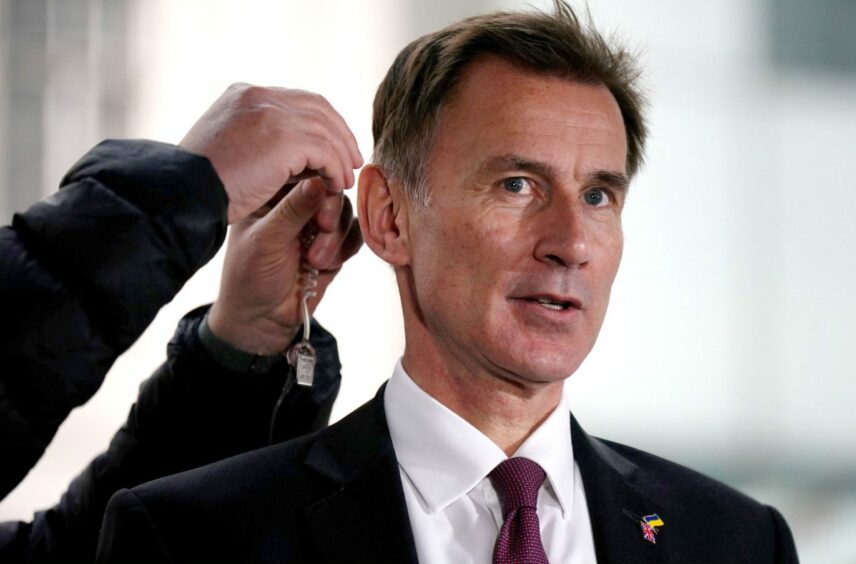
It is “unlikely” that Jeremy Hunt will toy with current energy windfall taxes when he delivers the government’s fiscal update next week.
Previewing the upcoming spring budget, Tim Sarson and Sharon Baynham of KMPG also played down the odds of the Chancellor hitting other sectors with levies.
They note that recent fiscal interventions have “not raised the tax revenues that the government expected”, primarily due to a drop in energy prices.
“There is a natural hedge between energy profits levy (EPL) income and the cost of the Energy Price Guarantee scheme,” the pair said.
Mr Hunt will take to the floor of the House of Commons on Wednesday next week to unveil the government’s spending plans.
Calls for tax cuts
A somewhat improved outlook for the UK – particularly compared to the backdrop that preceded November’s autumn budget – means the Chancellor is under growing pressure to cut taxes.
In his previous statement, Mr Hunt extended the windfall tax, of EPL, on North Sea producers until 2028.
The rate was also increased to 35%, for a headline level of 75%, and a link to the oil price axed.
North Sea producers slammed the move, and some have even reduced their planned UK investment as a result.
Mr Hunt also rolled out the Electricity Generator Levy, specifically designed to tap into the “extraordinary” profits of certain low carbon electricity generators, at a rate of 45%.
It too sparked fury from industry, and there will be many hoping that the Chancellor will backtrack on the policy, and address certain issues with the EPL, in his statement next week.
But KPMG is dubious about any movement either way, despite the pressure on the government to reduce the UK’s tax burden.
Mr Sarson and Ms Baynham said: “We think the prospect of further extensions or new windfall taxes in other sectors is unlikely. Whilst there may sometimes be a case for a windfall tax, they send a negative message to potential investors. Likelihood: We do not expect any new windfall taxes.”
Green spend incentives
“One core frustration for businesses”, also noted by KPMG, is a “lack of strategy on how the tax system will be used to help the transition to net zero”.
In the last year, both the European Union and the US have published landmark policies outlining how the plan to “incentivise investment” in green technology.
“There are many areas in the UK economy where green technology exists but there is inadequate infrastructure to access it easily and ensure the UK can use it to accelerate the move to green technology and energy, ensuring we hit net zero goals. Hydrogen is a good example of this,” said Mr Sarson and Ms Baynham.
“Any changes will need to offer certainty and stability. To change investment decisions, businesses need to know up-front if their project or spend will qualify. The UK has had a tumultuous year in terms of tax policy, and this can also act negatively on attracting investment. Businesses need to know what incentives are available and that they will stay in place for the foreseeable future.
“This is a difficult task when we have a general election in the near future, but if the government introduced bold, well targeted and efficient incentives this may be a legacy that would outlast their parliamentary term.”
Recommended for you


 © PA
© PA